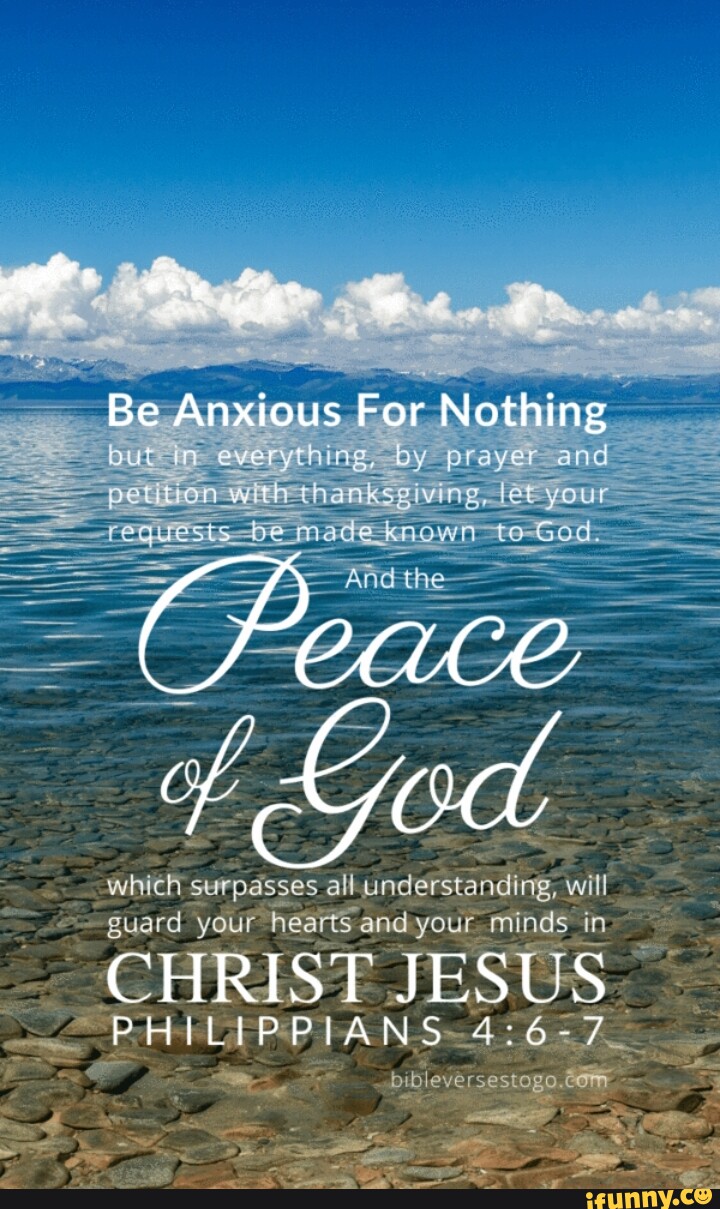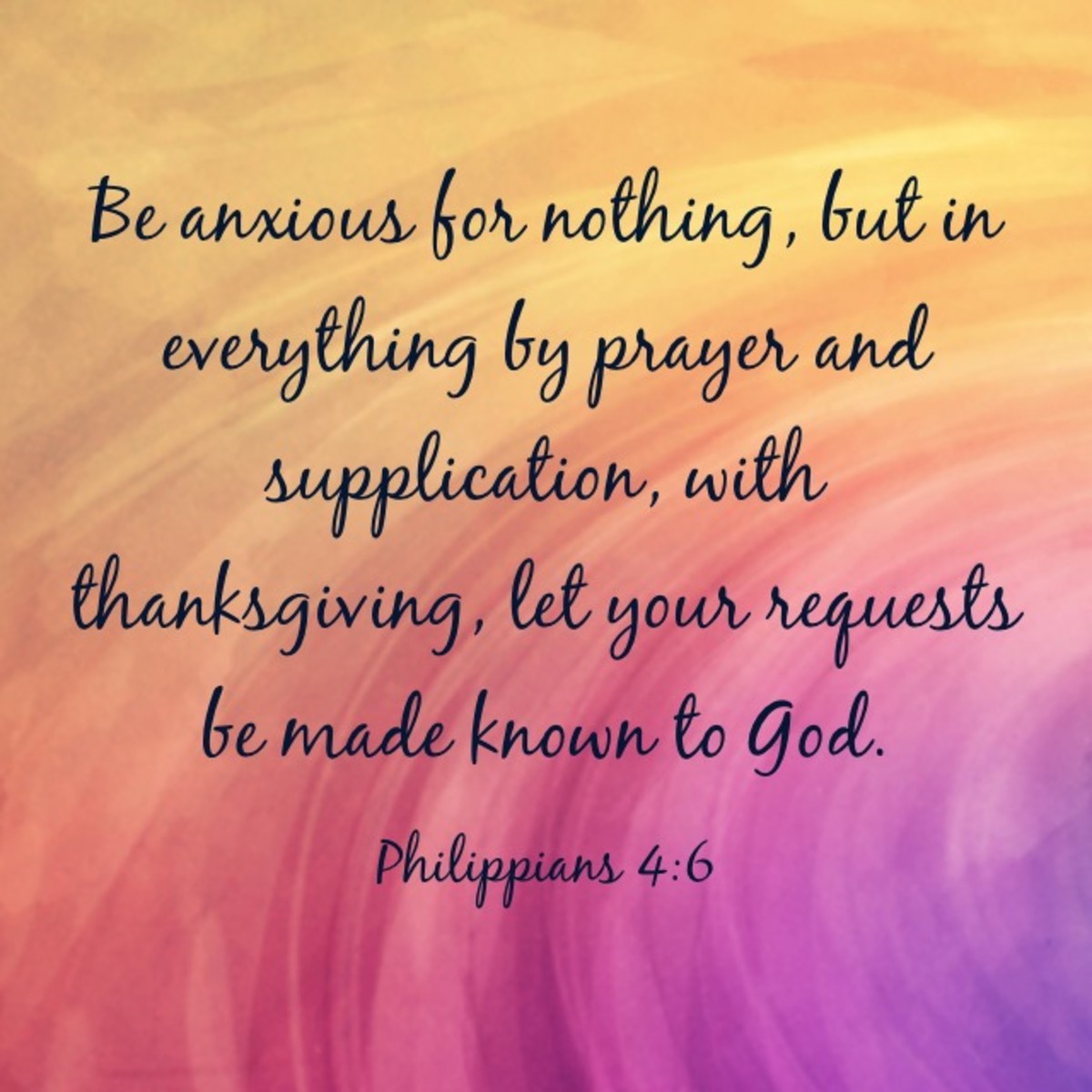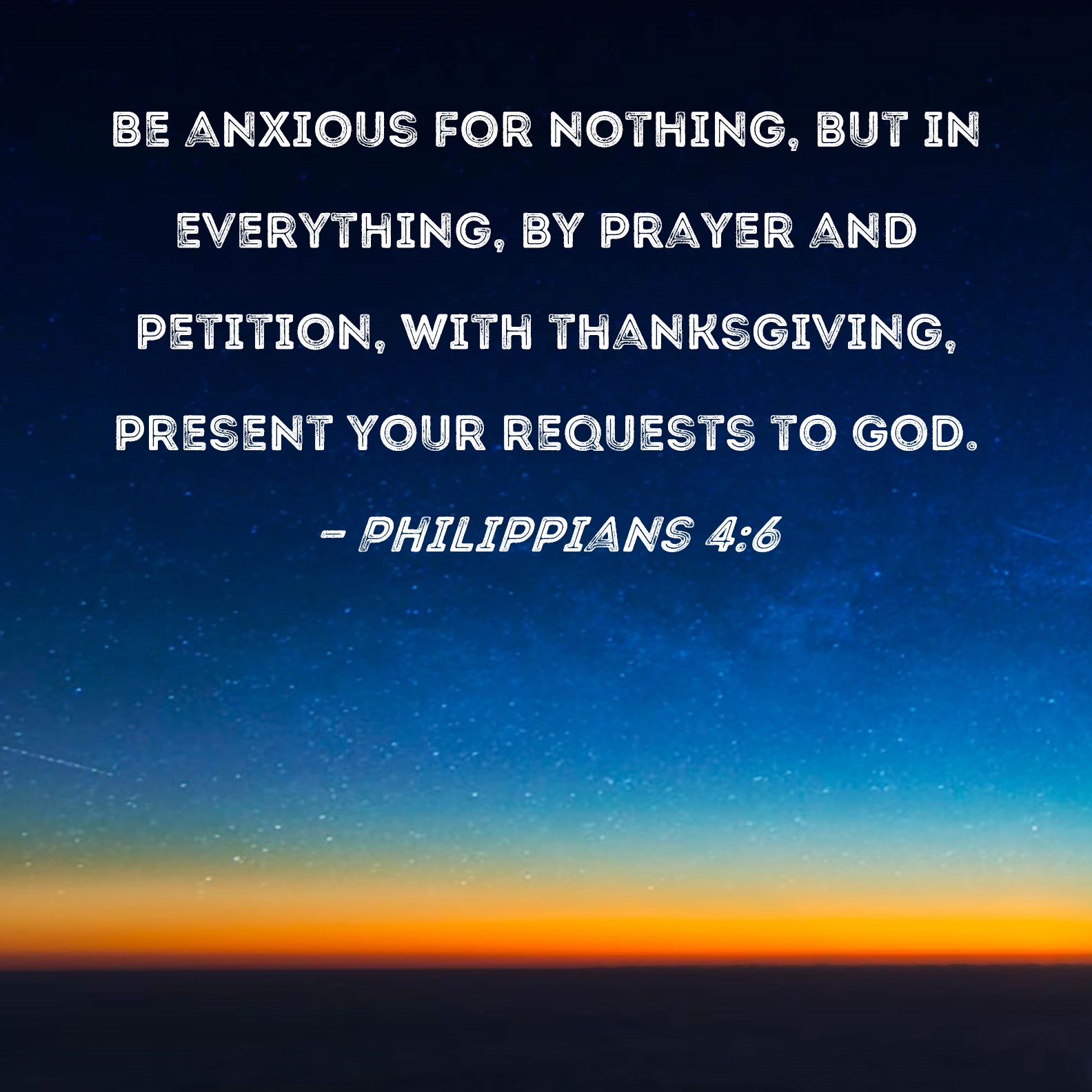There are moments in life when worries seem to pile up, creating a heavy burden on our spirits. It's a very common experience, this feeling of being weighed down by things that might happen or by circumstances that are just beyond our immediate reach to change. We often find ourselves caught in a cycle of thinking about what could go wrong, or perhaps dwelling on what has already gone amiss, and it can feel a bit overwhelming, really, at times.
This feeling of being troubled, of having a sense of unease about what lies ahead, or even what is right now, can make it difficult to find a quiet spot within ourselves. It's like a constant hum in the background, a low level of apprehension that seems to cling to our thoughts, and it can frankly be quite draining. We look for ways to lessen this burden, to somehow shake off the persistent feeling of dread or worry that seems to cling to our daily existence, you know?
But what if there was a way to truly let go of this persistent unease, to find a deep, settled quietness, no matter what situations arise? What if the path to inner calm was less about trying to fix every single outward problem and more about a different kind of inner shift? This idea, of being troubled by no single thing, offers a distinct way to approach life's various demands, suggesting a path to a more serene existence, basically.
- Louis Partridge Movies And Tv Shows
- Linkable Card
- Ariza Rockets
- A Million Little Pieces Book
- Chinese Hairless Dog
Table of Contents
- What does it mean to be anxious for nothing?
- The feeling of being anxious
- How can prayer help with anxious feelings?
- The practice of prayer and supplication
- Why is thanksgiving important when we are anxious?
- Expressing gratitude despite anxious thoughts
- What kind of peace comes from being anxious for nothing?
- A peace that goes beyond ordinary comprehension
What does it mean to be anxious for nothing?
To consider being anxious for no single thing might sound like a very tall order, perhaps even a bit unrealistic for most people living in this busy world. It doesn't suggest a complete lack of care or concern for the things that matter to us, or an absence of responsibility for our own situations. Rather, it speaks to a deep, inner freedom from the grip of worry, a way of living where our thoughts are not constantly consumed by fear or apprehension about what might come next. It's about letting go of that feeling of being troubled by every little detail, isn't it?
This idea encourages a profound shift in how we approach the various situations that life presents. Instead of allowing our hearts and minds to be overwhelmed by potential difficulties or by things that are outside our direct influence, we are invited to cultivate a different kind of inner posture. It's about finding a place of quiet acceptance and trust, where the inner turmoil that often accompanies being worried about something is replaced by a sense of calm assurance. So, it's almost a choice, in a way, to respond differently to the things that might typically cause us to feel troubled.
The core message here is not to pretend that difficulties don't exist, or to ignore the very real challenges that arise. It is, instead, a call to change our inner response to those challenges. It's about recognizing that while we may not always control external events, we can, in some respects, learn to manage our internal reactions to them. This involves a deliberate choice to release the burden of worry, to loosen its hold on our inner peace, and to embrace a different way of experiencing our daily lives, you know?
The feeling of being anxious
The experience of feeling anxious is a very familiar one for many individuals. It can show up as a racing heart, a mind that won't quiet down, or a persistent feeling of dread that seems to cling to every thought. This state of being troubled can make it hard to focus, to find rest, or even to enjoy the simple moments of life. It’s like carrying a heavy, unseen weight around with us all the time, and it can be quite tiring, really.
When we are troubled, our inner world can become a bit chaotic. Our thoughts might jump from one concern to another, creating a constant stream of what-ifs and worst-case scenarios. This internal chatter can be incredibly loud, making it difficult to hear our own quiet voice or to find any sort of inner stillness. It’s a feeling that tends to be quite pervasive, affecting not just our mental state but also our physical well-being, sometimes leading to sleepless nights or a general sense of being unwell, actually.
Recognizing this feeling of unease is the first step toward addressing it. It's about acknowledging that this inner turmoil is present, rather than trying to push it away or pretend it doesn't exist. By gently observing these feelings without judgment, we can begin to create a little bit of space between ourselves and the worry itself. This slight separation allows us to consider a different approach, one that offers a path to a more settled and peaceful inner state, more or less.
How can prayer help with anxious feelings?
When faced with feelings of being troubled, the idea of engaging in heartfelt communication, often referred to as prayer, is presented as a powerful method for releasing those burdens. This isn't just about wishing for things to change; it's about a sincere and open sharing of our innermost thoughts and feelings with a higher power. It’s a way of laying down the weight that we’ve been carrying, a way of expressing everything that’s on our minds, even the things that feel too big or too messy to articulate otherwise. So, it's almost like a direct line to a source of immense comfort, you know?
This practice involves more than just speaking words; it encompasses a deep, personal connection. It's about making our requests known, not in a demanding way, but with a humble and earnest appeal. This act of communication can bring a profound sense of relief, as it shifts the burden from our own shoulders to a source that is believed to be capable of handling all things. It's a way of acknowledging that we don't have to carry every single worry on our own, which can be a very freeing realization, really.
The act of pleading with deep sincerity, or supplication, is also a part of this process. It speaks to the earnestness of our desires and the depth of our need for support and guidance. When we engage in this kind of sincere appeal, it’s not about convincing the divine to act, but rather about aligning our own hearts and minds with a greater purpose and allowing ourselves to receive comfort and clarity. It helps us to release our grip on the outcomes and trust that things will unfold as they should, which is often a very hard thing to do, actually.
The practice of prayer and supplication
The regular practice of sincere appeal, or prayer, involves a consistent effort to communicate openly about all things that concern us. This means bringing every single worry, every small trouble, and every grand desire before the divine. It's about holding nothing back, presenting our entire inner landscape, including our fears and our hopes, without reservation. This consistent sharing helps to build a pathway for inner quiet to enter our lives, allowing us to find a sense of peace even when circumstances around us remain unsettled, more or less.
When we engage in humble requests, or supplication, we are not simply listing items we want. Instead, we are entering into a relationship where we express our dependence and trust. This kind of asking is rooted in a belief that our concerns are heard and that there is a benevolent force at work that cares for our well-being. It’s a powerful act of surrender, where we release our need to control every outcome and instead place our trust in a greater plan, which can be quite liberating, frankly.
This consistent communication also serves to reshape our own perspectives. As we regularly speak with the divine about our troubles, we begin to see them through a different lens. The things that once seemed overwhelming might start to appear more manageable, or we might find new ways of approaching them that we hadn't considered before. It's a process of gradually shifting from a state of constant unease to one of increasing inner quiet, a very gradual but profound change, you know?
Why is thanksgiving important when we are anxious?
An often-overlooked yet profoundly powerful part of dealing with anxious feelings is the practice of expressing gratitude, or thanksgiving. When we are feeling troubled, our minds tend to focus on what is wrong, what is missing, or what might go awry. This narrow focus can intensify feelings of unease and make it difficult to see any light in a difficult situation. However, deliberately shifting our attention to things for which we can show appreciation can dramatically alter our inner state, you know?
Including expressions of gratitude in our sincere appeals is not about ignoring the problems we face. Rather, it's about recognizing that even in the midst of difficulties, there are still elements of goodness, moments of grace, or simple blessings that remain. This act of showing appreciation helps to broaden our perspective, pulling us out of the tunnel vision of worry and allowing us to see the wider picture of our lives. It's a way of acknowledging that even when things feel tough, there's still something to be thankful for, which can be very comforting, actually.
The act of giving thanks, especially when we are feeling troubled, serves as a counterweight to the negative pull of apprehension. It helps to cultivate a more positive inner environment, making our hearts and minds more receptive to peace. It’s a deliberate choice to focus on what is good and what is working, rather than solely on what is challenging. This shift in focus can, in some respects, begin to dissolve the grip of worry, creating a pathway for a more settled feeling to take root within us, more or less.
Expressing gratitude despite anxious thoughts
The idea of expressing gratitude, even when our minds are filled with troubling thoughts, can seem a bit counterintuitive at first. When we are feeling deeply worried, it might feel unnatural to seek out reasons to be thankful. Yet, this very act can be a powerful tool for shifting our internal state. It’s about making a conscious decision to look for the small moments of goodness, the simple blessings, or the quiet comforts that still exist, even amidst the noise of our inner apprehension, you know?
This practice doesn't mean we are denying the presence of our worries. Instead, it means we are choosing to add another layer to our experience, one that acknowledges the presence of positive elements alongside the challenges. It’s like shining a small light into a dark room; it doesn't make the darkness disappear completely, but it does make it less overwhelming. This deliberate focus on what is good helps to create a more balanced emotional landscape within us, which is very helpful, really.
When we make our requests known with an attitude of showing appreciation, it changes the very nature of our communication. It moves us from a place of pure need to a place of trust and recognition of past kindnesses. This blend of earnest pleading and sincere thanks can open us up to receiving a deeper sense of inner quiet, allowing the troubled feelings to gradually lessen their hold. It's a powerful combination that tends to bring about a profound shift in our outlook, actually.
What kind of peace comes from being anxious for nothing?
The outcome of truly embracing the idea of being troubled by no single thing, and making our requests known with sincere thanks, is described as a profound inner quiet. This is not just any ordinary feeling of calm; it is presented as a peace that goes far beyond what our typical human grasp can figure out. It's a tranquility that doesn't depend on external circumstances being perfect or on all our problems being resolved immediately. Instead, it’s a deep, settled quietness that resides within, regardless of what is happening around us. So, it's almost like an internal anchor, you know?
This particular kind of inner quiet is said to protect our inner beings and our ways of thinking. It acts like a guardian, watching over our deepest feelings and our mental processes, keeping them safe from the disruptive influence of worry and fear. It means that even when life throws its inevitable curveballs, our core sense of calm remains intact, allowing us to respond with a greater sense of clarity and composure, rather than being swept away by emotional turbulence. It's a very steadying presence, really.
To experience a peace that exceeds our mental capacity suggests that this calm is not something we can simply logic our way into or achieve through sheer willpower alone. It is presented as a gift, an outcome of the deliberate practice of releasing our worries and entrusting them to a higher power with a thankful heart. This kind of inner quiet is a constant companion, a steady presence that helps us to remain centered even when the world around us feels chaotic. It’s a truly remarkable state to reach, actually.
A peace that goes beyond ordinary comprehension
The description of this inner quiet as something that goes beyond our ordinary mental capacity is a truly compelling thought. It implies that the calm we can experience is not merely the absence of worry, but a positive, active presence that is deeper and more expansive than anything we can logically understand or create for ourselves. It's a feeling of profound tranquility that seems to originate from a source greater than our own limited reasoning, you know?
This kind of inner quiet is said to guard our inner beings and our thoughts. This means it acts as a protective shield, keeping our deepest feelings and our mental processes safe from the usual anxieties that might otherwise consume them. It allows us to maintain a sense of calm and clarity, even when faced with situations that would typically provoke a great deal of unease or confusion. It’s a steadying force that helps us to keep our emotional balance, which is very valuable, really.
The promise is that this peace, which is greater than what we can figure out, will indeed settle within us. It’s not a fleeting feeling but a lasting state that helps us to navigate the various situations of life with a sense of quiet confidence. It means that by releasing our worries and embracing a posture of sincere appeal and showing appreciation, we open ourselves to receiving a profound inner quiet that remains with us, no matter what, more or less.
Related Resources:



Detail Author:
- Name : Kelvin Terry
- Username : elroy.flatley
- Email : huel.owen@stracke.com
- Birthdate : 1999-11-13
- Address : 383 Wuckert Fork Suite 578 East Ericland, VA 75210-3242
- Phone : +14457152795
- Company : Ziemann-Padberg
- Job : Residential Advisor
- Bio : Autem unde id aliquam et. Ex nihil ullam et aut dolor qui. Quae non consequatur labore sit.
Socials
facebook:
- url : https://facebook.com/norwood.stracke
- username : norwood.stracke
- bio : Illum unde dolor molestiae ex maxime illo rerum.
- followers : 5069
- following : 1202
tiktok:
- url : https://tiktok.com/@norwood8345
- username : norwood8345
- bio : Nulla reiciendis veniam illo repudiandae magni eius. Non rerum et sed vitae.
- followers : 5132
- following : 71